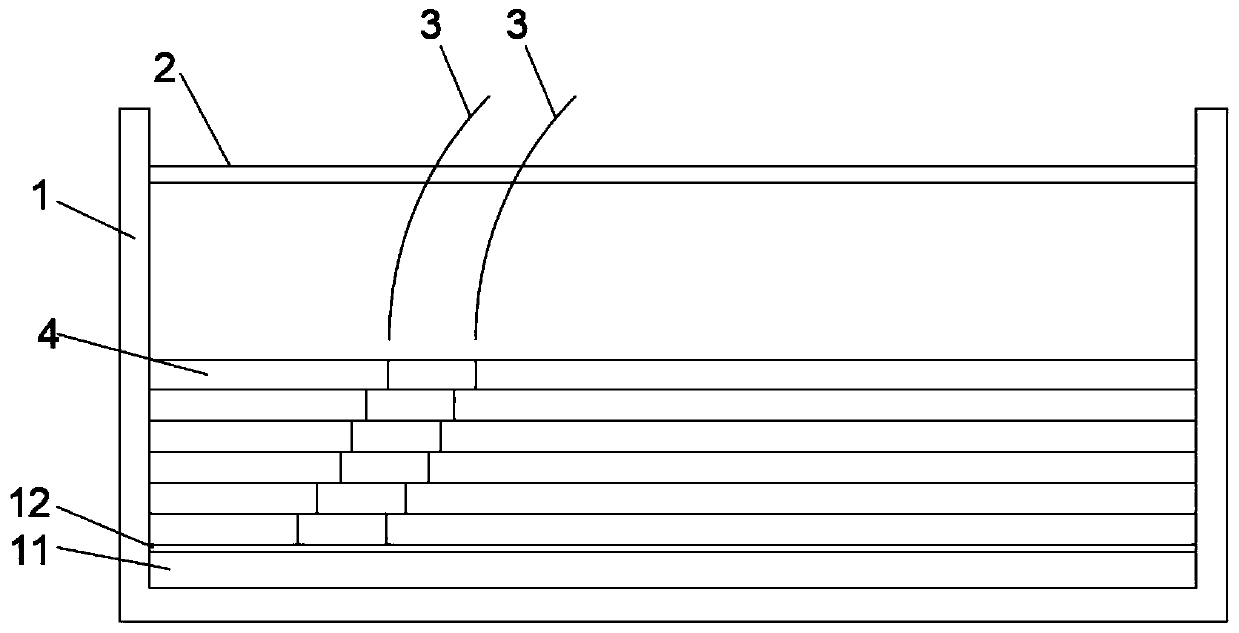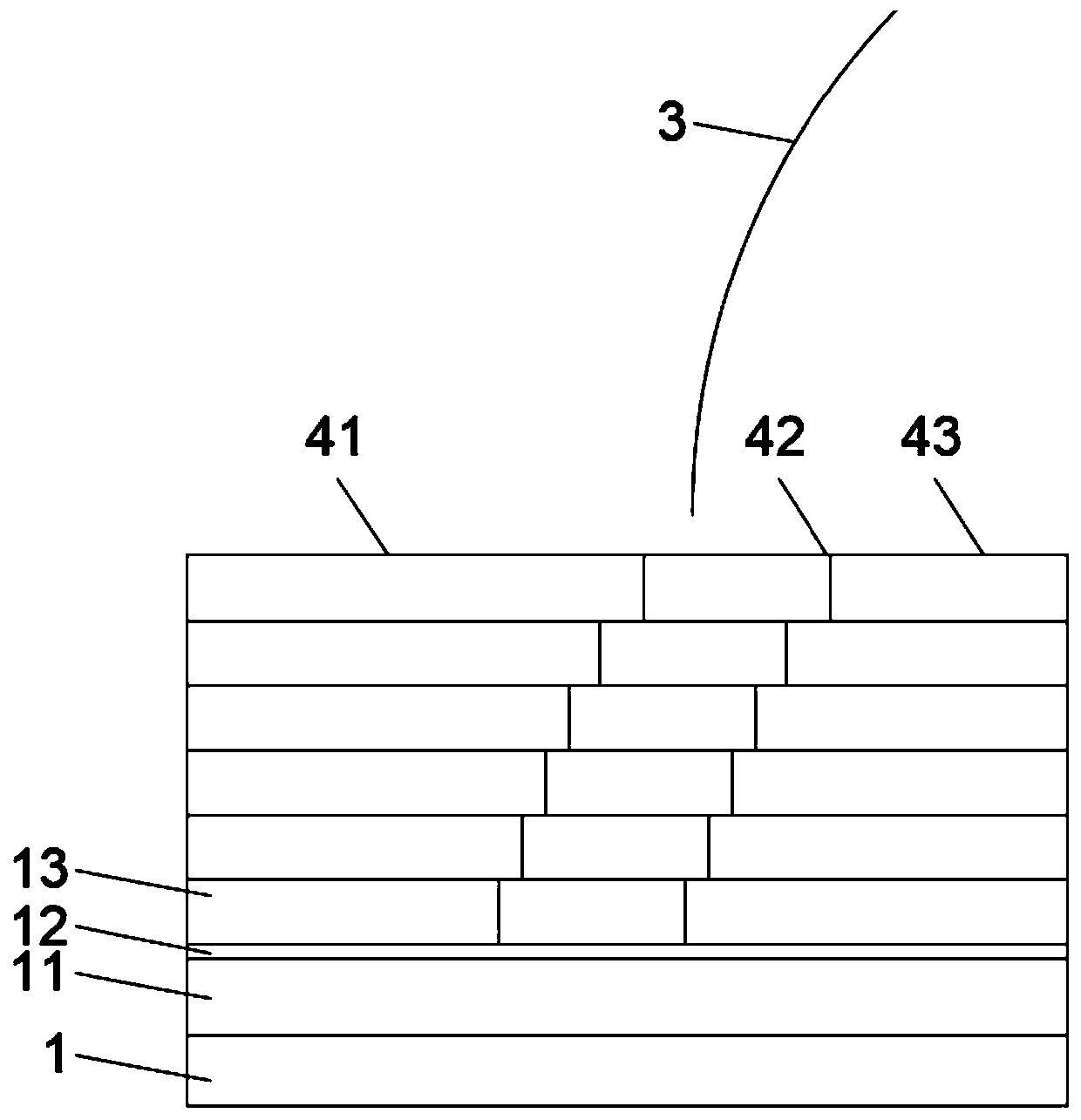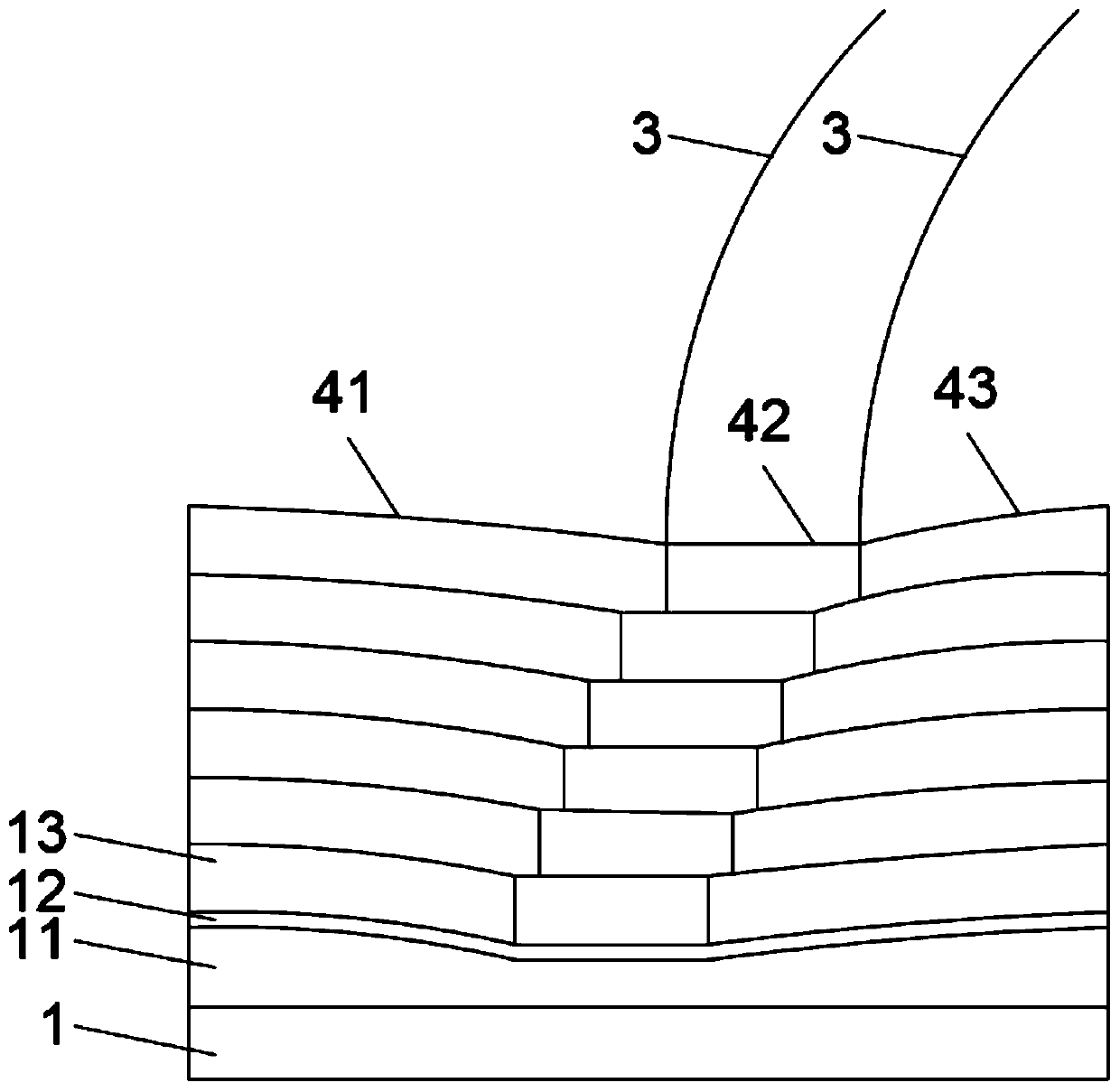Device and method for separating of partition bone and tendon interface bracket
A separation device and interface technology, applied in applications, bone implants, surgical instruments, etc., can solve the problems of tumorigenic risk of exogenous seed cells, lack of directional induced differentiation of stem cells, cumbersome operation process, etc.
- Summary
- Abstract
- Description
- Claims
- Application Information
AI Technical Summary
Problems solved by technology
Method used
Image
Examples
Embodiment 2
[0036] A separation method for partitioning the bone-tendon interface support, in combination with the device of embodiment 1, comprising the following steps:
[0037] S1. Place several three-phase tissue sheets 4 on the bottom of the first cavity from top to bottom to form a three-phase tissue scaffold with several scaffold layers; wherein, each scaffold layer includes a three-phase tissue sheet 4, and the three-phase The tissue slice 4 includes a bone area 41 , a cartilage area 42 and a tendon area 43 distributed sequentially along the transverse direction. It should be understood that under normal circumstances, each scaffold layer is only composed of one three-phase structure sheet 4 (or one three-phase structure sheet 4 constitutes one scaffold layer), but other situations also fall within the protection scope of the present application.
[0038] S2. Press the partition plate 3 on the three-phase tissue sheet 4, and form a bone partition, a cartilage partition and a tendo...
PUM
 Login to View More
Login to View More Abstract
Description
Claims
Application Information
 Login to View More
Login to View More - R&D
- Intellectual Property
- Life Sciences
- Materials
- Tech Scout
- Unparalleled Data Quality
- Higher Quality Content
- 60% Fewer Hallucinations
Browse by: Latest US Patents, China's latest patents, Technical Efficacy Thesaurus, Application Domain, Technology Topic, Popular Technical Reports.
© 2025 PatSnap. All rights reserved.Legal|Privacy policy|Modern Slavery Act Transparency Statement|Sitemap|About US| Contact US: help@patsnap.com



